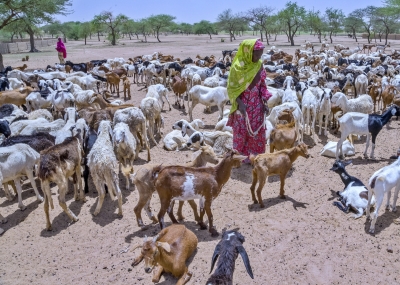Creating a community of RuralInvest trainers in Niger
 Farmer in Niger
Farmer in NigerA multimillion-dollar World Bank project is working to increase the productivity and drought resilience of agro-silvopastoral production systems in Niger, while also improving the Government’s emergency response capacity. Investing in climate-smart agriculture, strengthening service delivery and creating rapid response mechanisms for emergencies are among the project’s main components.
A team from the Investment Centre trained 30 people from national and regional NGOs, consulting firms, the Ministry of Agriculture and Livestock and other regional institutions in charge of territory and community development on the use of RuralInvest. The aim was to strengthen the capacity of service providers to prepare viable business plans to help farmers and rural communities access rural financing for micro-projects.
RuralInvest is a participatory, interactive and bottomup approach. The training, featuring a mix of classroom exercises, fieldwork and hands-on learning, introduced participants to the RuralInvest methodology and modules. Part of the training focused on how to collect data systematically. Trainees met with farmers in the field to discuss their investment ideas, the size and technical complexity of their intended investment, and the expected market for their products. For example, one group discussed with a female investor the possibility of raising fresh fish in newly constructed fishponds on the land she also uses to grow vegetables. She could recycle the older fishpond water and fish excrements to irrigate and fertilize her vegetable garden.
The trainees then used the RuralInvest software to assess the financial feasibility and overall sustainability of the proposed investment, including calculating production costs, income and risks, and prepared an investment profile.
A follow-up training is planned for June 2019. This second phase will cover the difficulties participants encountered while working independently in the field. After completing the training phase and field exercises, the trainees will help investors in their respective regions prepare actual business plans to submit to funding agencies.
